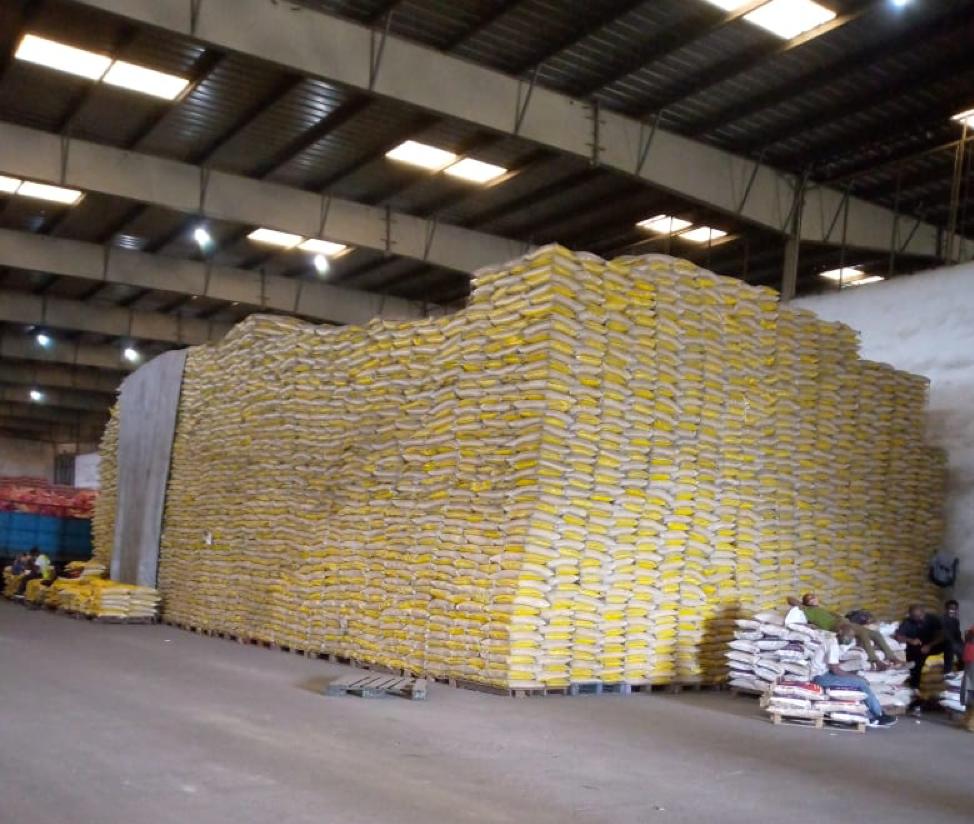Africa-Press – Liberia. Liberians have begun to lament the repercussions that the reported shortage of the nation’s staple, rice, would have on the country at a time when the nation is grappling with the impacts of the coronavirus pandemic.
This situation, which many think will put the country under undue pressure if not handled immediately, is already making the public jittery as many people are seen in long queues across Monrovia to purchase a few bags of rice.
Shirley Doe, a resident of Paynesville, described the reported shortage as embarrassing, “and it will bring more tension in the country. She said Liberians cannot be facing a dire health crisis and at the same time an economic situation. She indicated that this will be too much of a burden to bear for the citizenry.
“We cannot be fighting two things at once. We the Liberians love our rice business so much. So we are asking the government to handle the crisis immediately. “Liberians cannot fight Covid-19 on empty stomach,” Mary, a mother of three, stated.
Reports of the short supply of rice on the local market began emerging last as the ordinary people began to experience increase in the prices of the commodity—a situation many think would pose more economic challenges to the underprivileged masses and the disabled population.
Visits to some of the major markets and retailer’s outlets within and around Monrovia showed that there was no rice on display or in stock for sale to consumers. The little ones are also on sale for high prices. Some paid US$15.00 to US17.00 unlike the US$13.00 known price.
Some retail traders at major markets and distributors of the product told our reporter that they had yet to restock after exhausting the stocks they had for three weeks.
One of the rice dealers, Sam Mulbah, told FrontPage Africa that he’s still expecting new stocks which he had ordered two weeks ago. “For the past two weeks, no rice has been in my store despite getting assurances that rice will be in the country soon,” he said.
“I paid for new stocks of rice but unfortunately they had yet to be delivered.
“Once I receive a phone call from Alausa to come and pick the products, l will go and pick them. “The delivery is usually on first come first serve. So, l am waiting for my turn,” he said.
Another distributor, only identified as Sheriff, said he ran out of stocks for two weeks. “Since then, l have been waiting for new supplies of rice from the importer bit to no avail.
Theresa Labalah, a graduate of the University of Liberia and a business woman in Duala, said in an interview that the looming crisis would hit Liberians the hardest— culminating into a double crisis as Covid-19 is already having a huge health and economic toll on the population.
“If this looming rice crisis is not addressed swiftly, it has the potential to undermine the efforts that the government is making in the Covid-19 fight,” Ms. Labalah noted, “When people are hungry they will have no ears to listen to or adhere to the health protocols. And there is a likelihood that the pandemic will rise to an unprecedented level.”
She called on the government to ensure that the situation is addressed as soon as possible so that it does not undermine the fight against the pandemic as the members of the public would no longer adhere to the health protocols when they are hungry.
The government has however rubbished the reports, saying there is no need to worry as rice is in enough supply in the country. It said unscrupulous business people are hoarding rice, thus creating an artificial shortage of the commodity on the local market—all in the name of profit making.
“There is no need to worry as rice is in enough supply in the country, ” Minister of Commerce and Industry, Mawine G. Diggs, told a press conference at the Ministerial Complex in Congo Town last week.
“I want to state clearly that there is absolutely no shortage of rice on the market and therefore, there is no need for panic buying as we have observed. The wholesale price of rice remains at US$13 and there is a sufficient stock of rice in the country,” she said.
She disclosed that a team of inspectors from the Ministry will be deployed around the country to enforce the approved prices of commodities on the market.
“It is important to know collectively that the five major importers of rice have approached the government on the need to increase the price of rice by 2US$ as the result of multiple global supply challenges,” Madam Diggs said. Despite the importers’ demand, she said, “However, the rice importers have committed to continue the wholesale of rice to local retailers.”
The Minister said based on data in the possession of her ministry, there are 40,000 metric tons of rice in the country, accounting for 1.6 million bags of the 25Kg rice. “The available quantity has the capacity to supply the local rice market for approximately three months,” the minister noted.
Minister Diggs’ comments were rebuffed by two prominent Liberians, Lofa County Representative Clarence Massaquoi and Steve Flahn-Paye, formerly of the Ministry of Commerce.
Both men, who believed that there is a shortage of the commodity, said George Weah’s administration is not doing enough to address the looming rice crisis. They feel the government has made some rash decision that is now impacting everyone.
Making reference to the Coalition for Democratic Change (CDC) administration’s pronouncement of a US$2.00 reduction in the price of rice, Flahn-Paye noted, “I don’t think the government was forced to reduce the prices of the commodity right after ascending to power in the absence of an empirical analysis.”
“The economy is not driven by political power but market forces, supply and demand. It is not about you creating an impression,” he said, “now that the policy decision without economic backings has started to bite.”
Rep. Massaquoi said subsidizing rice, as the government is doing now, is not the best way forward, adding that the government should rather increase local rice production.
Meanwhile, rice has become a “political commodity” since the 1970s following the infamous “Rice Riot”—a mass protest in Monrovia that was triggered by a hike in the prices of rice. This protest led to the death of over 50 people and hundreds of others injured.
Amid the latest situation, many are afraid that the situation would undermine the gains already made in the fight against COVID-19 and are therefore calling on the government to ensure that the nation is not distracted by another crisis.
This story was produced with support from Journalists for Human Rights (JHR), through the Mobilizing Media in the Fight Against COVID-19 in partnership with FrontPage Africa






